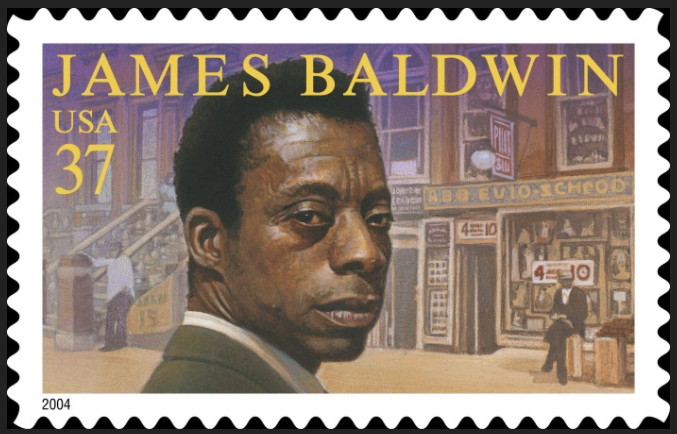This Week in Freethought History (July 28-August 3)
Here’s your week in Freethought History. This is more than just a calendar of events or mini-biographies – it’s a reminder that, no matter how isolated and alone we may feel at times, we as freethinkers are neither unique nor alone in the world.
Last Sunday, July 28, but in 1902, British philosopher Sir Karl Popper was born. He studied and taught in Vienna until the rise of the Nazis forced this son of Jewish parents to emigrate. He was sympathetic to the Vienna School of philosophy, though he was never a member. A professor of logic and the scientific method at the London School of Economics for 20 years, Popper insisted that since nothing can be absolutely proven true, the test should be whether a proposition is falsifiable. His chief works were political as well as philosophical: The Logic of Scientific Discovery, The Open Society and Its Enemies, The Poverty of Historicism and so on. Popper was knighted in 1965. In a 1969 interview, reprinted 29 years later in Skeptic magazine, Popper admits his agnosticism and the reasons for his disbelief. In discussing his attitudes toward Judaism and Christianity, he also admits a respect for the moral teachings of both religions.Last Monday, July 29, but in 1644, the pope who will be remembered throughout history as the persecutor of Galileo, Urban VIII, died at Rome. Born on a date uncertain in April 1568 in Galileo’s ancestral home of Florence, (four years after Galileo’s birth), the future pope was reared among the wealthy and privileged. On the death of Gregory XV, he was elected pope in 1623 at age 55 and took the name Urban VIII. While the Thirty Years’ War raged between Catholics and Protestants in Europe, Urban canonized Ignatius of Loyola. Ignatius, of course, founded the Jesuits, an organization whose chief accomplishment was inciting the Thirty Years’ War. As for Urban and Galileo, the Catholic Encyclopedia can barely begrudge a mention of the savaging of the scientist, for which Urban is directly responsible. One Catholic apologist website has the temerity to write: “Urban … is connected with the famous condemnation of Galileo. The imprudent astronomer had been lured by his enemies on to the field of theology and as a result had been condemned by a commission of the Holy Office. He gave in, however, and suffered small inconvenience in a sort of house arrest. The affair was unfortunate…”The moral decisions of others should be treated with respect, as long as such decisions do not conflict with the principle of tolerance. We have the right not to tolerate the intolerant. We should tolerate even them whenever we can do so without running a great risk; but the risk may become so great that we cannot allow ourselves the luxury. (Karl Popper, The Open Society and Its Enemies, 1945)
It takes great skill to assemble so many distortions into so few words. Urban was hated by the Romans for his nepotism. Far from being a friend, Urban directed Galileo’s every punishment, having taken great offense at his arguments against the Copernican, earth-centered system being annihilated in print by Galileo (Dialog, 1632). The contemporary documents show that “he was menaced with torture again and again by express order of Pope Urban.” Galileo’s “small inconvenience,” as the apologist puts it, was for the world-renowned scientist, already ailing and nearly blind, to be confined to his home, forced to recant and forbidden to teach and write what he knew to be true – and what he had demonstrated to be true! Urban ended his days by pouring the papal treasury into his corrupt family’s coffers, rather than financing the Catholic powers in the Thirty Years War. Even the Catholic Encyclopedia has to admit that “Urban’s greatest fault was his excessive nepotism.”
Last Tuesday, July 30, but in 1889, Emanuel Julius was born – later to become known as the book publisher E. Haldeman-Julius. Emanuel, already making his name at liberal newspapers, met and married Marcet Haldeman, a banker and heiress, who was the niece of Jane Addams of Hull House repute. Emanuel had a vision of making good literature available to large numbers at low prices, so he set up a printing plant in the small mid-western town of Girard, Kansas, and began producing what came to be known as his Little Blue Books. Marcet and E. Haldeman-Julius – they legally changed their names – became wealthy publishers throughout the nineteen-twenties and thirties. E. Haldeman-Julius expanded on his religious opinions in several of his own publications: “We advocate the atheistic philosophy because it is the only clear, consistent position which seems possible to us. As atheists … we declare that the God idea … is unreasonable and unprovable; we add, more vitally, that the God idea is an interference with the interests of human happiness and progress. We oppose religion not merely as a set of theological ideas; but we must also oppose religion as a political, social and moral influence detrimental to the welfare of humanity.” Last Wednesday, July 31, but in 1485, the source of the Arthurian legends as we know them today, eight romances known as Le Morte D’Arthur, was published in London. The work was written by Sir Thomas Malory (c 1405-1471), published by the father of printing, William Caxton (1422?-1491), and promotes what we today call the “Age of Chivalry.” This nobler time has been relentlessly romanticized in literature and film. It presumably lasted from 1100 to 1400 in England, France, Germany, Italy, and Spain. Chivalry in myth – especially as outlined by historian Léon Gautier in 1891 – was a time of deep religious faith, respect for the weak, bravery in battle, veneration of women, generosity of spirit, truth and justice. This may come as a revelation to those who think morality is on the decline in the world today, but during the “Age of Chivalry” the noble and knightly classes of both sexes were saturated with sexual vice and violence, brigandry and theft, and uncommon corruption. Serious scholars describe the age, when everyone went to church, as the worst period for morals in the history of civilization. You might conclude that if the “Age of Chivalry” was the apotheosis of Christianity, then gentle Jesus was a rascal. Last Thursday, August 1, but in 1954, American science writer James Gleick was born. A Harvard graduate, Gleick worked for ten years as an editor and reporter for the New York Times. He not only profiled many scientists, including evolutionary biologist Stephen Jay Gould, for the Times, but wrote biographies of theoretical physicist Richard Feynman (1992) and physicist Isaac Newton (2003). His best-selling books include The Information: A History, a Theory, a Flood (2011) and Chaos: Making a New Science (1987), a Pulitzer Prize finalist, which “helped make the Butterfly Effect a household word.” He has his own blog where he discusses at great length and depth the modern information age in relation to human evolution. In the introduction to his 2002 book What Just Happened: A Chronicle from the Information Frontier, Gleick proposes, “I may not believe in God or the NASDAQ, but I believe in the network as global village and as global brain.” Yesterday, August 2, but in 1924, African-American writer, civil rights activist and social critic James Baldwin was born. Known chiefly for his semi-autobiographical coming-of-age novel Go Tell It on the Mountain (1953), which examines the role of the Christian Church in the lives of African-Americans, and for his essay collections, Baldwin took bold and critical looks into largely uncritically accepted racial, sexual, and class distinctions in American society. By age 17, he had come to believe Christianity is based on false premises. He left the church, but retained the cadences of its pulpit rhetoric and its worldview in his writing. As recounted in “Down at the Cross” (in The Fire Next Time), while visiting Nation of Islam founder Elijah Muhammad, Baldwin was asked about his religious beliefs. He answered, “I left the church 20 years ago and haven’t joined anything since.” Elijah asked, “And what are you now?” Baldwin replied, “I? Now? Nothing. I’m a writer. I like doing things alone.” At a time when the religion-inspired civil rights activists, like Martin Luther King Jr. and John Lewis, got most of the press, the skeptics in the movement, like Baldwin, novelist Richard Wright, poet Langston Hughes, labor organizer A. Philip Randolph and historian W.E.B Du Bois, seem to disappear. Although he never described himself as an atheist, it was James Baldwin who said, “Christianity has operated with an unmitigated arrogance and cruelty – necessarily, since a religion ordinarily imposes on those who have discovered the true faith the spiritual duty of liberating the infidels. … If the concept of God has any validity or any use, it can only be to make us larger, freer, and more loving. If God cannot do this, then it is time we got rid of him.”
Yesterday, August 2, but in 1924, African-American writer, civil rights activist and social critic James Baldwin was born. Known chiefly for his semi-autobiographical coming-of-age novel Go Tell It on the Mountain (1953), which examines the role of the Christian Church in the lives of African-Americans, and for his essay collections, Baldwin took bold and critical looks into largely uncritically accepted racial, sexual, and class distinctions in American society. By age 17, he had come to believe Christianity is based on false premises. He left the church, but retained the cadences of its pulpit rhetoric and its worldview in his writing. As recounted in “Down at the Cross” (in The Fire Next Time), while visiting Nation of Islam founder Elijah Muhammad, Baldwin was asked about his religious beliefs. He answered, “I left the church 20 years ago and haven’t joined anything since.” Elijah asked, “And what are you now?” Baldwin replied, “I? Now? Nothing. I’m a writer. I like doing things alone.” At a time when the religion-inspired civil rights activists, like Martin Luther King Jr. and John Lewis, got most of the press, the skeptics in the movement, like Baldwin, novelist Richard Wright, poet Langston Hughes, labor organizer A. Philip Randolph and historian W.E.B Du Bois, seem to disappear. Although he never described himself as an atheist, it was James Baldwin who said, “Christianity has operated with an unmitigated arrogance and cruelty – necessarily, since a religion ordinarily imposes on those who have discovered the true faith the spiritual duty of liberating the infidels. … If the concept of God has any validity or any use, it can only be to make us larger, freer, and more loving. If God cannot do this, then it is time we got rid of him.”
…Fish say, they have their Stream and Pond;
But is there anything Beyond?
This life cannot be All, they swear,
For how unpleasant, if it were!
…
But somewhere, beyond Space and Time,
Is wetter water, slimier slime!
And there (they trust) there swimmeth One
Who swam ere rivers were begun,
Immense, of fishy form and mind,
Squamous, omnipotent, and kind;
…And in that Heaven of all their wish,
There shall be no more land, say fish.
Other birthdays and events this week—
July 28: German philosopher Ludwig Andreas von Feuerbach was born (1804).
August 1: American novelist Herman Melville was born (1819).
August 2: British physicist John Tyndall was born (1820).
We can look back, but the Golden Age of Freethought is now. You can find full versions of these pages in Freethought history at the links in my blog, FreethoughtAlmanac.com.







